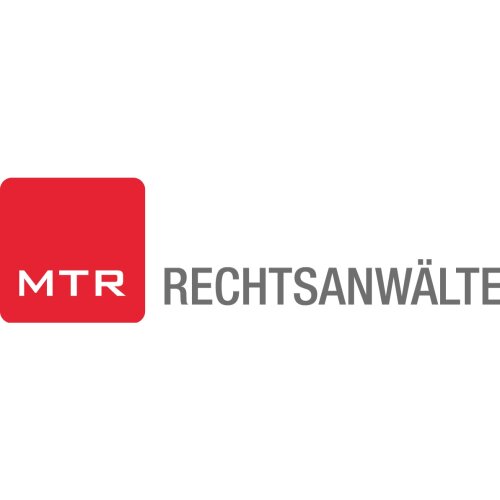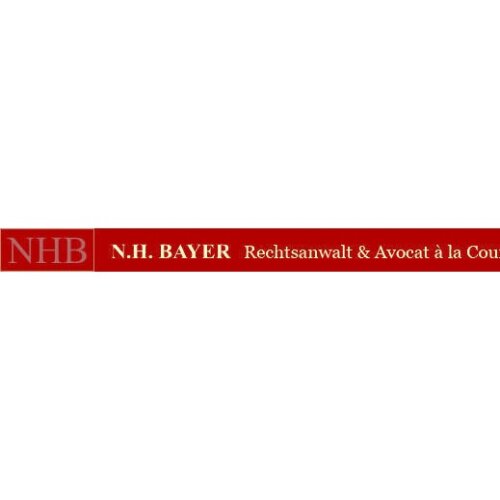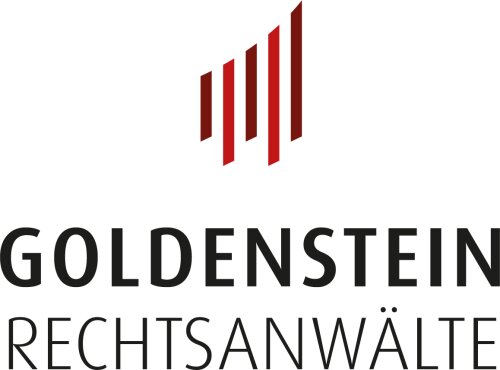Best Sanctions & Export Controls Lawyers in Berlin
Share your needs with us, get contacted by law firms.
Free. Takes 2 min.
List of the best lawyers in Berlin, Germany
About Sanctions & Export Controls Law in Berlin, Germany
Sanctions and export controls refer to legal measures that restrict or regulate the movement of certain goods, services, technologies, or financial resources across Germany’s borders. In Berlin, these regulations are shaped by German federal laws, European Union (EU) regulations, and international commitments. Sanctions typically involve restrictive measures against specific countries, organizations, or individuals, focusing on matters like arms embargoes, trade restrictions, or financial prohibitions. Export controls often concern items with dual-use potential, meaning products that can serve both civilian and military purposes. These controls are crucial for maintaining international security, adhering to foreign policy objectives, and complying with international obligations.
Why You May Need a Lawyer
Several common scenarios may require the assistance of a lawyer experienced in sanctions and export controls in Berlin:
- Encountering investigations for alleged breaches of export controls or sanctions laws
- Planning to export goods, software, or technology that may have dual-use applications
- Doing business with partners in countries subject to EU or German sanctions
- Having assets frozen or transactions denied based on suspected connections to restricted parties
- Facing customs disputes or issues with obtaining export licenses
- Expanding operations internationally and needing compliance guidance
- Responding to inquiries from regulatory authorities regarding transactions or business relationships
A lawyer can assess your exposure to risk, help you understand applicable laws, communicate with authorities on your behalf, and create compliance programs to avoid future legal issues.
Local Laws Overview
Sanctions and export controls in Berlin are primarily regulated at the federal and EU levels. Key aspects include:
- The German Foreign Trade and Payments Act (Außenwirtschaftsgesetz - AWG) and its related regulations oversee the export, import, and transit of goods, technology, and services.
- The EU Dual-Use Regulation controls technology and goods that have both civilian and military applications, requiring licenses for their export from the EU, including Germany.
- EU and UN sanctions are directly applicable in Germany, including sectoral bans, asset freezes, and prohibitions on financial services to listed entities or individuals.
- The German Federal Office for Economic Affairs and Export Control (BAFA) is the primary regulatory body overseeing export control licensing and compliance.
- Germany imposes severe penalties for violations of export controls or sanctions, including significant fines and prison sentences in serious cases.
Compliance obligations apply to individuals and entities involved in cross-border trade, technical services, and sometimes financial transactions with foreign parties.
Frequently Asked Questions
What are sanctions?
Sanctions are legally binding measures restricting trade, financial transactions, or other activities with specific countries, organizations, or individuals to achieve foreign policy and security objectives.
What are export controls?
Export controls are laws and regulations that govern the export or transfer of certain goods, technologies, or services, especially those with dual-use or military applications, to prevent their misuse.
Do EU sanctions apply in Germany?
Yes, all EU sanctions are directly applicable in Germany. German companies and residents must comply with these restrictions in addition to national measures.
What is dual-use technology?
Dual-use technology refers to items, software, or technology that can be used for both civilian and military purposes, such as certain chemicals, electronics, or software.
Who enforces export control and sanctions laws in Germany?
The German Federal Office for Economic Affairs and Export Control (BAFA) enforces export controls, issues licenses, and oversees compliance matters.
What are the consequences of violating sanctions or export controls?
Consequences can include fines, asset seizures, imprisonment, and reputational damage. Serious violations are treated as criminal offenses.
Do I need a license to export goods outside Germany?
In many cases, especially for dual-use items or goods destined to sanctioned countries, you will need an export license issued by BAFA.
How do I check if my business partner is subject to sanctions?
You should screen counterparties against publicly available EU and UN sanction lists, and seek guidance from legal counsel or BAFA if in doubt.
Can an individual, not just a company, be held liable?
Yes, individuals can be held criminally and civilly liable for violations, especially if they participate in or approve sanctionable transactions.
What practical steps can companies take to ensure compliance?
Implement internal compliance programs, conduct regular staff training, screen business partners, maintain accurate records, and consult with legal experts for complex issues.
Additional Resources
- German Federal Office for Economic Affairs and Export Control (BAFA) - Main licensing and advisory authority on export controls and sanctions
- Federal Ministry for Economic Affairs and Climate Action (BMWK) - Offers guidance on foreign trade law and relevant regulations
- European Commission - Publishes sanction lists and provides updates on EU-wide measures
- Chamber of Industry and Commerce Berlin (IHK Berlin) - Support and seminars on export compliance and sanctions
- Legal information portals and professional organizations offering legal directories and expert guidance
Next Steps
If you believe you require legal advice on sanctions and export controls in Berlin:
- Gather all relevant documents, including contracts, export documentation, licenses, correspondence, and compliance policies
- Make note of the goods, technologies, or transactions involved and the countries or parties you intend to do business with
- Consult with a specialized lawyer or legal advisor experienced in sanctions and export control matters
- Reach out to regulatory authorities such as BAFA for clarification or preliminary advice if applicable
- Implement or update internal compliance programs based on the guidance received
Taking early and proactive legal advice will help mitigate risks, ensure compliance, and prevent costly breaches.
Lawzana helps you find the best lawyers and law firms in Berlin through a curated and pre-screened list of qualified legal professionals. Our platform offers rankings and detailed profiles of attorneys and law firms, allowing you to compare based on practice areas, including Sanctions & Export Controls, experience, and client feedback.
Each profile includes a description of the firm's areas of practice, client reviews, team members and partners, year of establishment, spoken languages, office locations, contact information, social media presence, and any published articles or resources. Most firms on our platform speak English and are experienced in both local and international legal matters.
Get a quote from top-rated law firms in Berlin, Germany — quickly, securely, and without unnecessary hassle.
Disclaimer:
The information provided on this page is for general informational purposes only and does not constitute legal advice. While we strive to ensure the accuracy and relevance of the content, legal information may change over time, and interpretations of the law can vary. You should always consult with a qualified legal professional for advice specific to your situation.
We disclaim all liability for actions taken or not taken based on the content of this page. If you believe any information is incorrect or outdated, please contact us, and we will review and update it where appropriate.

















